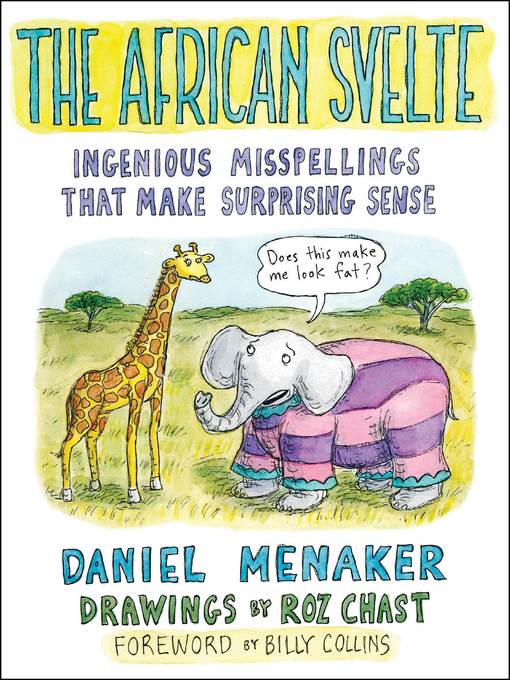
The African Svelte
Ingenious Misspellings That Make Surprising Sense
کتاب های مرتبط
- اطلاعات
- نقد و بررسی
- دیدگاه کاربران
نقد و بررسی

August 8, 2016
In this slender volume, Menaker (My Mistake), a former editor at the New Yorker and Random House, delivers a wry look at a particular type of poor usage that he deems “the African svelte.” The African svelte is “the verbal equivalent of trying to put a shoe on the wrong foot,” because it somehow fits anyway, Menaker explains, referring to unintentionally misused words that produce comprehensive sentences. Menaker introduces the concept with the story of its namesake: he came across the sentence “the zebra were grazing on the African svelte” while reading through the fiction slush pile at the New Yorker magazine and was so amused that he started keeping a working list of similar slippages. He also muses on the Internet’s effect on language, and other types of word gaffes including spoonerisms, malapropisms, eggcorns, etc. The bulk of the book consists of numbered examples of sveltes along with short explanations of their provenance. Illustrator Chast (Can’t We Talk About Something More Pleasant?) chimes in to illustrate entries intermittently throughout the book (her sketch for “the terrorist was wearing a baklava” being particularly funny). The result is an amusing romp through the English language that will please language snobs and open-minded linguists. B&w illus.

Common expressions gain richness of meaning through mistakes in word usage.As an editor at the New Yorker, Menaker (My Mistake, 2013) often encountered phrases from fledgling writers in which a sound-alike word, mistaken for the right one, would add a whole new dimension to the meaning of a phrase. Take, for example, "the throws of packing," which replaces a word that many could not define ("throes") with a common, action-packed one that suggests the way so many of us pack, throwing things here and there into piles, boxes, or suitcases. Or, "pass mustard." Even fewer might be able to define the correct "muster" or use it in any other context. But "mustard" provides a visual dimension, however incongruous, and it perhaps relates to another phrase, "too old to cut the mustard," which is linguistically unrelated but could become confused in the mind. Some of the entries proceed from a different impulse and gain poetic resonance, such as "sobbing wet," which seems to suggest something different and sadder than "sopping." And having a "self of steam" could easily apply to someone suffering from low self-esteem. New Yorker illustrator Chast (Can't We Talk About Something More Pleasant?, 2014, etc.) is typically brilliant when the cues call for visualization, especially with the stomach X-ray for "end-trails" and "something that really gets my gander up" (another one of those where most readers couldn't define the correct "dander" or use it in any other context). There is even one selection that could spark a geographical debate, since "chile peppers" is common parlance from Texas through the Southwest, even though "Red Hot Chile Peppers" would not be correct as the band's name. Acclaimed poet Billy Collins provides the foreword. An up-and-down yet mostly amusing collection. Many readers will skim the short analyses while enjoying the examples and illustrations. COPYRIGHT(1) Kirkus Reviews, ALL RIGHTS RESERVED.

























دیدگاه کاربران